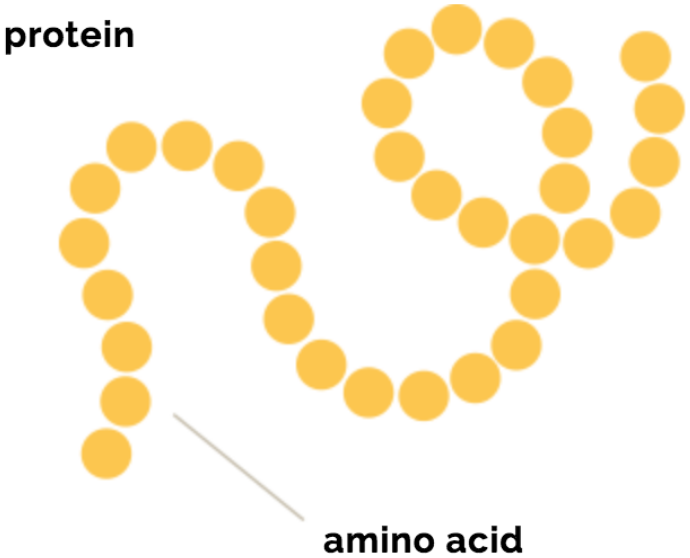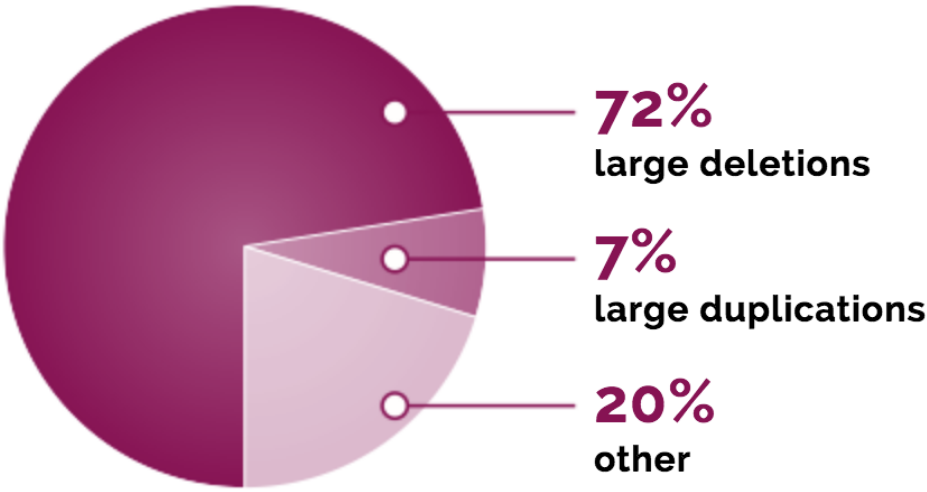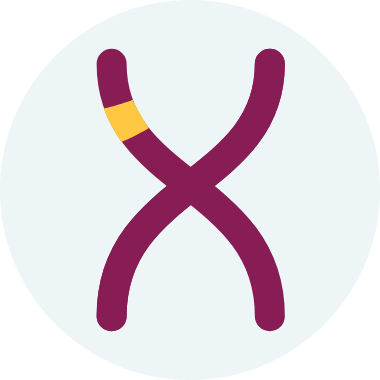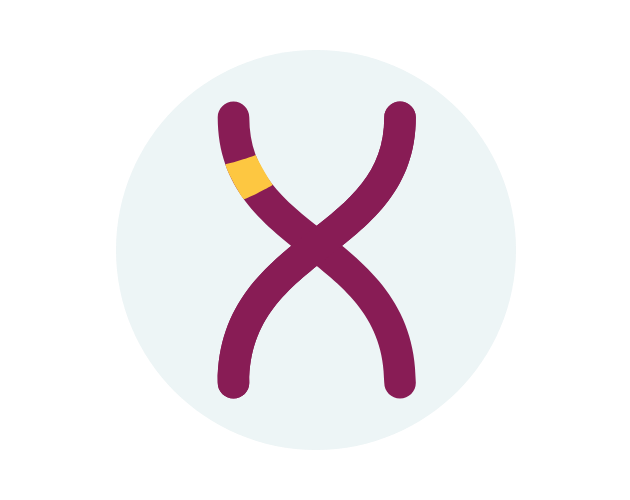
DILLON, living with Duchenne.
The Role of Genetics in Duchenne
Genetic Mutations
Duchenne is a genetic disease, which means there is a change–or error–in one of the body’s genes.
In Duchenne, the error occurs in the genes or instructions used to make a protein called dystrophin. Dystrophin is needed by muscles in the body to protect them as they contract and relax. Children with Duchenne are unable to make the dystrophin protein, causing their muscles to weaken over time.
There are over 7,000 known mutations of the dystrophin gene. Each mutation represents a different change in the genetic code.
Learn more about the role dystrophin plays in Duchenne and why it matters.
A Closer Look at Our Body’s Instructions
Amino acids and proteins are the building blocks of life. Our bodies use amino acids to make proteins, which are essential for our bodies to function. Each protein has a specific job – for instance, helping you digest food, helping your hair and nails grow, or helping you fight off infection. To make these important proteins, the body needs instructions so it knows which protein to make and how to make it. These instructions are found in our DNA.
DNA is short for deoxyribonucleic (dee-oxy-rye-bo-new-clay-ick) acid. It is found in nearly every cell in our body and carries all of our genetic information.
A length or section of DNA is called a gene. Each gene is made up of smaller parts called introns and exons. When the body needs to make a protein, instructions in the DNA are given to a similar molecule called RNA, or ribonucleic (rye-bo-new-clay-ick) acid. During this process, the introns are removed and all the exons are linked together to make one long chain of instructions, which are then carried to another part of the cell by messenger RNA (mRNA).
Once there, particles in the cells called ribosomes “read” the instructions and make the correct protein using amino acids.
Genetic Mutations in Duchenne
The mRNA shown below comes from the dystrophin gene and contains 79 exons that are linked together to form the instructions for making dystrophin protein. Researchers have discovered that mutations, or errors, in the dystrophin gene alter the instructions for making dystrophin.
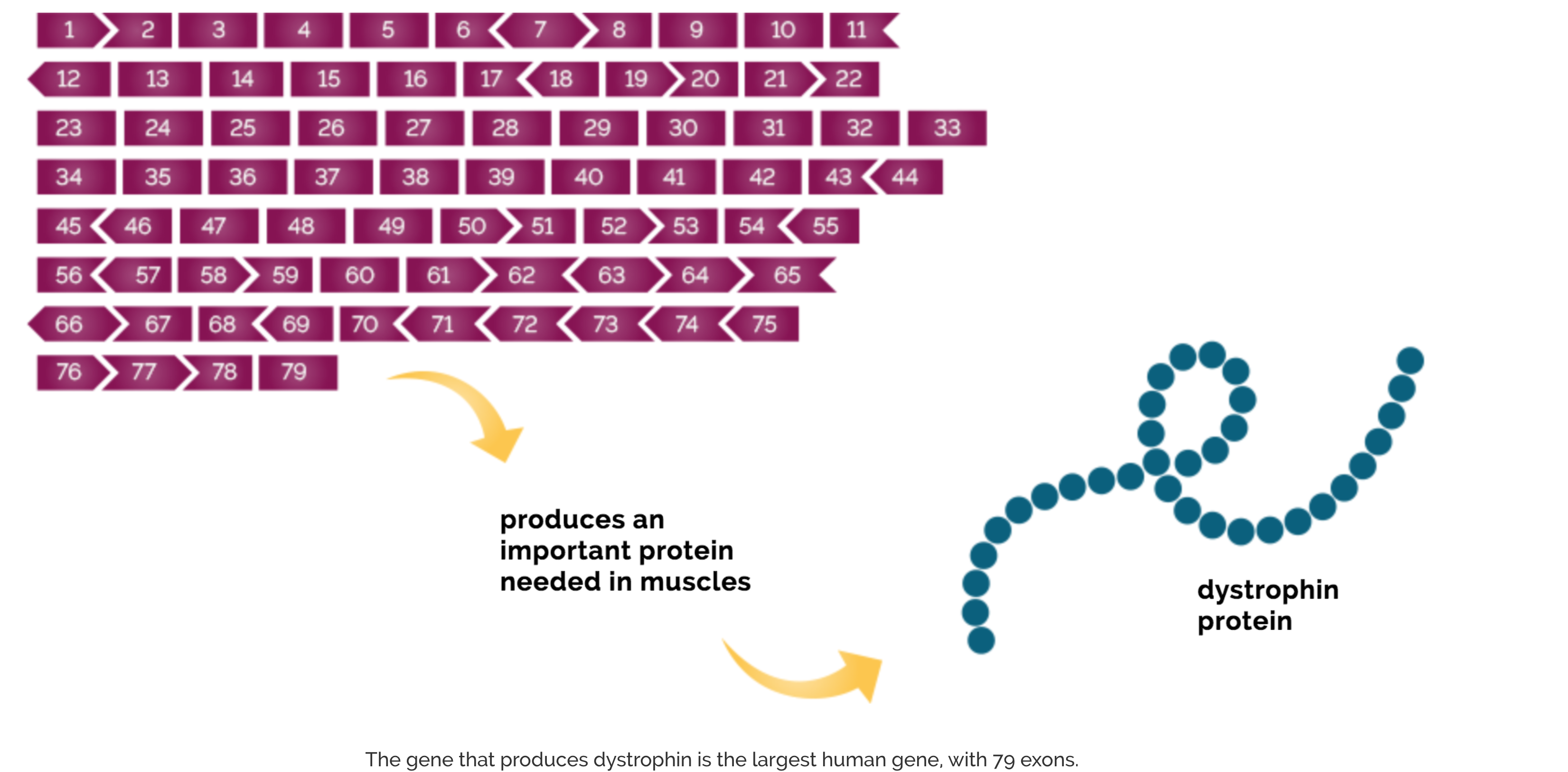
Types of Genetic Mutations
Types of mutations include:
- Large deletions: One or more exons are missing from the dystrophin gene
- Large duplications: One or more exons have extra copies in the dystrophin gene
- Other changes: Small changes, such as tiny deletions or changes in a single letter in the instructions
The most common mutation in people with Duchenne is a deletion of one or more exons. Much like a puzzle, these missing pieces prevent the remaining exons from fitting together properly. This causes errors in the instructions for making dystrophin, and the body is not able to produce a working dystrophin protein.
Inheritance of Duchenne Genetic Mutations
Duchenne is a genetic disorder that can be inherited, with the mutation occurring before or during pregnancy. While it is possible for someone with no family history to have the disease, it is most commonly passed down through families. To understand how the disease is inherited, we need to take a closer look at genetics.
Chromosomes are the parts of our cells that carry our DNA. Healthy people normally have 46 chromosomes, divided into 23 pairs. These pairs contain all the instructions our bodies need to make us who we are. We inherit our chromosomes from our parents.
One of these pairs of chromosomes determines if the baby will be a boy or a girl. Girls have 1 X chromosome from their mother and 1 X chromosome from their father, while boys have 1 X from their mother and 1 Y from their father.
Carrier Testing
Parents of children with Duchenne muscular dystrophy may want to consider carrier testing. More often, Duchenne runs in families and is passed from the parent to the child. If a woman is a carrier, her daughters may be too and any other sons she has may also have Duchenne. A genetic counselor can help determine how this information affects her current and future children. Some female carriers may also have some mild muscle weakness and may be at greater risk of heart problems.
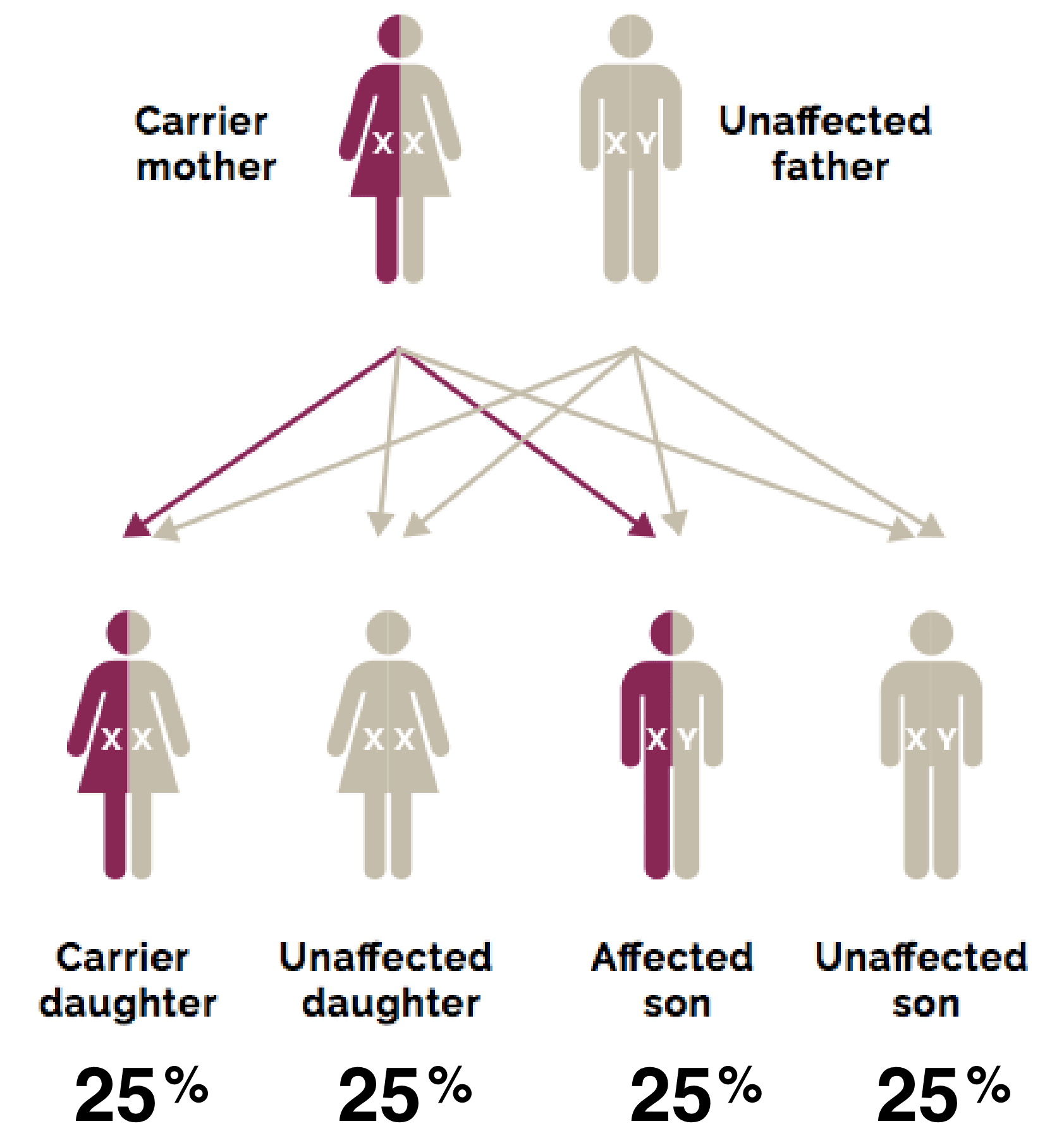
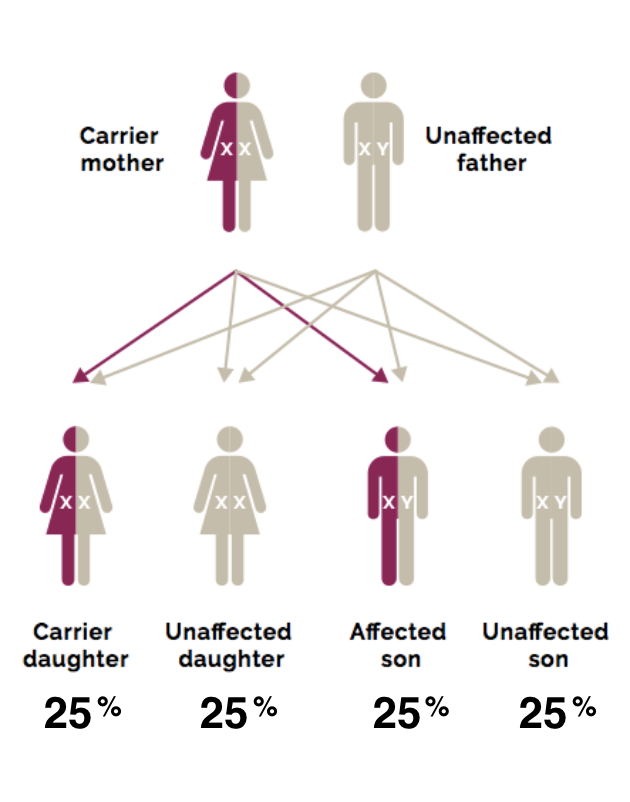
Duchenne is an X-linked disease, meaning that the genetic mutation that causes the disease is found on the X chromosome.
If a woman has the Duchenne-causing mutation in one of her chromosomes, she is considered a carrier. As a carrier, she likely has no symptoms of the disease, but she has the ability to pass it along to her child. It is not guaranteed that she will pass along the mutation. Typically, there is a 25% chance of having a boy with Duchenne, a 25% chance of having a girl who is a carrier, and a 50% chance of having a baby without the mutation.
Where can I find a genetic counselor?
You will likely meet with a genetic counselor at a doctor’s office. Specialist clinics such as the Muscular Dystrophy Association (MDA) Clinics and care centers such as the PPMD Certified Duchenne Care Centers also have genetic counselors who can help you.
The Duchenne Registry, a PPMD program, can also help you access genetic testing and genetic counselors. If you or your child needs genetic testing, please contact the Duchenne Registry Coordinators at coordinator@duchenneregistry.org. The Decode Duchenne program also offers free genetic testing for qualified applicants.

